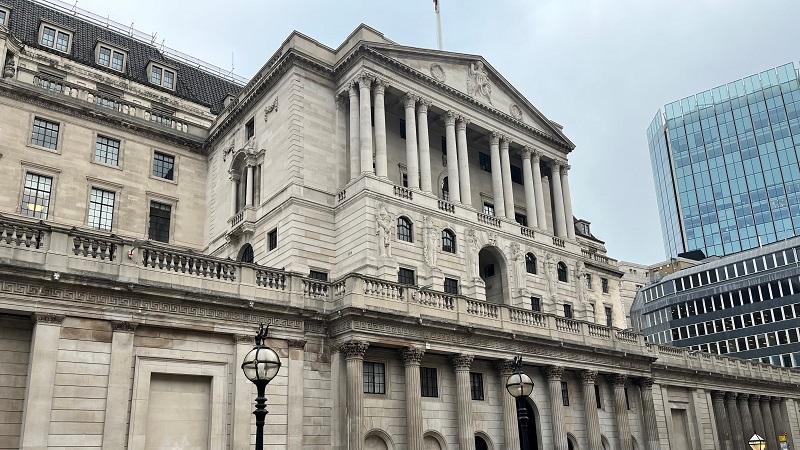The future path of interest rates is becoming ‘ever harder to predict’ after UK wage growth and job vacancies have both continued to fall, according to figures from the Office for National Statistics (ONS) published today (12 December).
UK wage growth further eased to 7.3% in the three months to October, down from 7.7% in September.
Meanwhile, job vacancies fell for the 17th consecutive month, this time by 45,000. However, they remain above pre-pandemic levels.
The unemployment rate remained unchanged at 4.2%.
Richard Carter, head of fixed interest research at Quilter, said: “New statistics from the ONS this morning reveal the UK labour market continues to battle on despite the intense economic pressures it faces. The Bank of England’s next interest rate decision is just days away, and the future of interest rates is becoming ever harder to predict.”
See also: FCA warning on platform cash rates could prompt profit squeeze
He added: “This dip in pay suggests the BoE’s previous interest rate decisions are beginning to have the desired effect and it will likely feel vindicated to continue to hold rates higher for longer as a result. Though today’s figures suggest another step has been taken in the right direction, the bank will be keen to see a significant slowdown in wage growth before it begins to contemplate the possibility of cutting interest rates.”
Danni Hewson, head of financial analysis at AJ Bell, said another ‘no-change’ decision from the BoE looks “almost nailed on”.
“As the economy has cooled so has that record pace of wage growth which had so troubled MPC members,” she said.
“There’s been an awful lot of talk about that mythical soft landing and there’s no doubt the full effects of the brutal rate hike cycle are yet to filter through, but so far, the employment see-saw has managed to balance out.
“More work needs to be done to help those stuck in the economically inactive category if any kind of meaningful GDP growth is to be achieved, especially with the current political pressure on legal migrants and the UK work force.”
Looking to Thursday’s Monetary Policy Committee meeting and beyond, IG Group chief market analyst Chris Beauchamp believes the outlook for rate cuts is more optimistic.
He commented: “UK workers continue to benefit from above-inflation pay rises, but the slowdown in wage growth might also give hope that the BoE can think more positively about cuts in rates next year, should inflation continue to come down. While there is almost no chance of them acknowledging the possibility on Thursday, maybe today’s wage figures will allow them to think about entertaining it at some point.”










